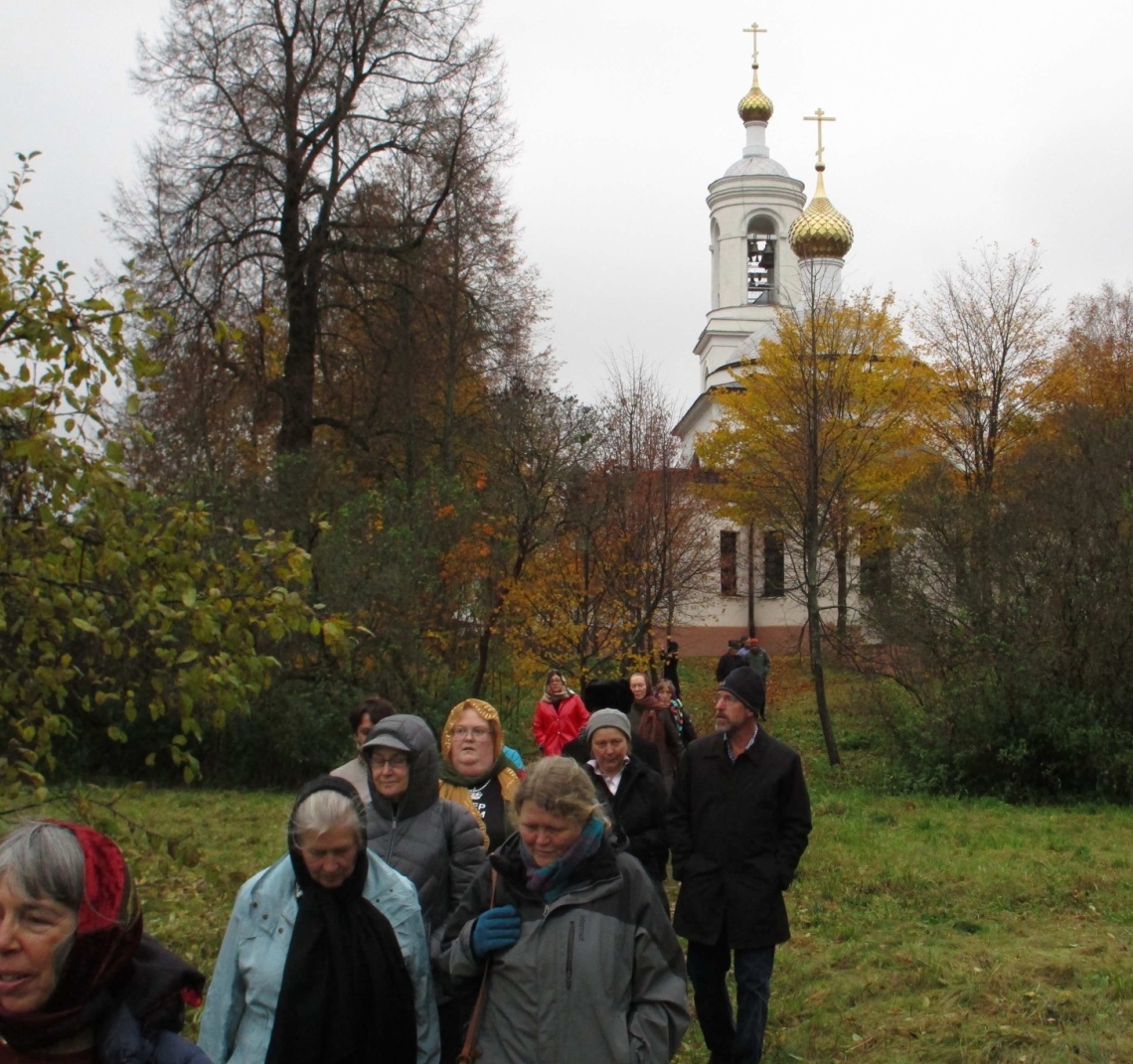Interfaith Journeying with Slavyanka
Yom Kippur on the Train to St. Petersburg
by Bettina Gray
On October 12th of this year, I was on a train between Moscow and Saint Petersburg traveling with members of the Slavyanka Russian Chorus on a concert tour of Russia.
That particular morning a number of us were standing in the aisles or sitting on the arms of train seats, rocking between concert locations. We were saying the Ashamnu prayer, the prayer of confession and atonement for Yom Kippur, the holiest day of the year in the Jewish calendar. It was an impromptu interfaith Yom Kippur remembrance making use of the only available time we had, carved out of a very demanding performance and travel schedule, and the only available space we had, in the aisles of a speeding train.
Slavyanka derives its name from the name that early Russian settlers gave to what is known now as the “Russian River,” north of the San Francisco Bay Area. As one would expect from a Bay Area chorus, our singers come from all kinds of ethnic, religious, and cultural backgrounds. Only a small number are recent Russian-speaking immigrants. We are brought together by our love of the Russian musical heritage.
Our singers come from Russian Orthodox, Protestant and Catholic, Jewish, Buddhist, and non-religious traditions, a rare and rich environment for me in my role as Composer-in-Residence. On the tour we were singing a mix of Russian Orthodox and American spirituals and secular music. Four cities, seven concerts, in ten days, all on the theme of “hope.”
Statue of Poytr Illyich Tchaikovsky at the Moscow Conservatory. Photo: Wikimapia
It was an intense schedule with little time except to rehearse, prepare, and sing a concert. Then eat and rest and travel between locations. We had been invited to Russia as the only American chorus for the 150th anniversary celebration of the Moscow Conservatory, where Pyotr IlyichTchaikovsky was a founding faculty member.
Our main concert, at the Conservatory, happened to be scheduled for the night of October 11, the beginning of Yom Kippur. Our Jewish chorus members were forced into an uncomfortable decision between their commitment to the chorus and the commitment to their faith. There was no time to attend services; we had to leave the next morning for Saint Petersburg for concerts in Novgorod and at the Glinka Capella, the Carnegie Hall of Russia.
Music, Peace, and Atonement
The concert that night in Moscow was sold out, standing room only. The reception was wildly enthusiastic with rhythmic clapping, cheers, a standing ovation, and, we hear, some tears from an audience stunned that an American community chorus would bring them their own music and sing it with deep feeling and care, traveling several thousand miles to do so. We were living proof of the reality that music is an instrument of peace. It was what we had all hoped and spent much time and investment to attempt; watching our audience react told us we were, indeed, on the right track.
Yom Kippur prayers being read on Slavyanka’s train ride to St. Petersburg. – Photo: Bettina Gray
So the train ride between Moscow and Saint Petersburg the next morning allowed us our only free time to acknowledge, in some way, Yom Kippur and the place it holds for our Jewish singers. They graciously invited as many of us as would like to join with them to gather wherever we could fit as they read and sang through prayers for the occasion.
Riding the rails, each reading and prayer was thoughtfully explained to those of us who were not Jewish, and we were invited to reflect together on the deeper meanings of atonement and repentance with a will to renewed commitments for the year to come. This was followed by a prayer for the dead, for family members recently deceased.
We also commented on the symbolism of moving through Russia, remembering not only immediate family members but those who suffered under pogroms and persecution in the Soviet era and before. As we were asked to include and name those we would like to remember, I included a dear friend of mine whose father had fled Russia to the U.S. a century ago and whose daughter was traveling with us as one of the few non-singers accompanying the tour. For both of us it was breathtakingly unexpected and poignant to be remembering him with this mixed group of singers, traveling across Russia.
Slavyanka choir members leaving the Orthodox Chapel where they held a memorial service. – Photo: Bettina Gray
There are many levels to the meaning of the word harmony. As singers we came together, after much time, effort, rehearsals, and advance planning to make music and bring hope. But we experienced harmony with a resonance that went beyond the acoustics of sound, harmony at its deepest meaning, embedded in the arrangement of personalities unified by their good will and intent of service and the experience of genuine love for one another. It was apparent throughout the trip in the ways each of us looked after one another, not just in singing but even through mishaps, special needs, and support.
One choir member lost his sister, a former chorus member, from cancer the day we left the U.S. for the tour. And again the choir found an impromptu place and time to sing with him the Russian Orthodox memorial service in a small but beautifully restored church that had been used during the Soviet era as a tractor machine shop.
C. S. Lewis called the book about his own spiritual awakenings Surprised by Joy. In these impromptu remembrances I saw again the deep meaning of the Sacred. It takes us by surprise, it blesses us in unexpected ways, it does not conform to our boundaries but leaps over them and brings us together, often in the most unlikely of situations. And in this surprise is renewal.
Header Photo: Bettina Gray





